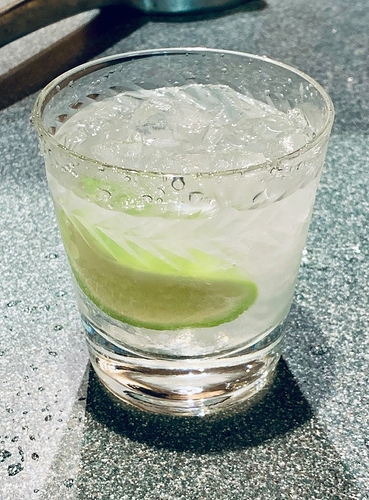@Splificator recently wrote a brief on the ’Ti Punch for the Beast, which subsequently raised questions (from Europeans, mainly) on Facebook about lime juice—or rather, lack thereof—in the form outlined in the article.
As I was “trained” by Ed Hamilton, there’s little-to-no juice in the drink—maybe a few drops slip in from the lime disc—but that it’s really about the oils. My understanding was that Martinique natives don’t usually add ice, taking it undiluted a bit like the Jamaicans take their Wray & Nephew (egad), and generally serve the ’Ti Punch unassembled so that the drinker can customize theirs as they see fit.
But I’ve never been to Martinique.
One Dirk Becker claimed to be just back from Martinique and stated, “I’ve just been to Martinique and the recipe is simple. You take as much rum as you like, fine cane sugar and the skin of the lime, cut off a little more generously. In any case no ice!”
Fine cane sugar!? Martinique sugar cane syrup has always defined the drink for me as much as rhum.
I’m curious whether there’s a solid documentation on the emergence and evolution of this drink? (If so, I would expect it to be French.)
